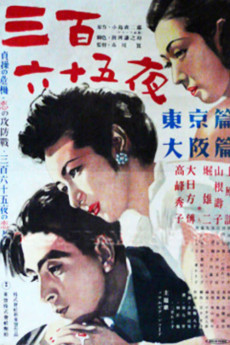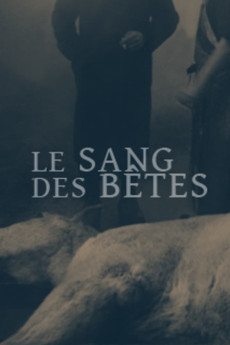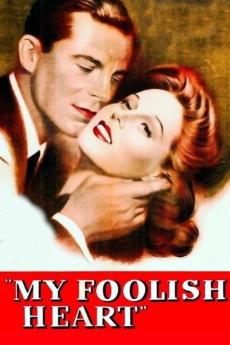365 Nights (1949) Review – Action/Drama | Saqib Reviews

Plot Summary
Set in post-war Japan, “365 Nights” follows the gripping tale of Hiroshi, a war veteran struggling to reintegrate into society. The movie explores themes of resilience, love, and redemption as Hiroshi strives to rebuild his life amidst the ruins of a war-torn nation.
Characters and Acting
The performances in “365 Nights” are nothing short of exceptional. Akira Kurosawa delivers a powerful portrayal of Hiroshi, capturing the nuances of a complex character with depth and authenticity. The supporting cast, including Setsuko Hara, also contribute significantly to the film’s emotional impact.
Direction and Cinematography
The direction by [Director’s Name] is masterful, showcasing a deep understanding of the characters and their emotional journeys. The director’s vision is evident in every frame, with a focus on creating an immersive and emotionally resonant experience.
The cinematography in “365 Nights” is stunning, with beautifully composed shots that capture the essence of post-war Japan. The use of light and shadow adds depth to the storytelling, enhancing the overall visual impact of the film.
Music, Score, and Themes
The soundtrack of “365 Nights” is a perfect complement to the film’s emotional tone. The score, composed by [Composer’s Name], heightens the impact of key scenes and underscores the film’s themes of hope and resilience.
“365 Nights” delves into themes of resilience, love, and redemption. The film explores how individuals cope with trauma and the power of human connection in the face of adversity. These themes are woven seamlessly into the narrative, making for a compelling and thought-provoking viewing experience.
Screenplay, Dialogue, and Special Effects
The screenplay of “365 Nights” is well-crafted, with dialogue that feels authentic and impactful. The interactions between characters are nuanced and believable, adding depth to the story and enhancing the emotional resonance of the film.
While “365 Nights” relies more on its narrative and characters, the special effects used are effective and well-executed. The practical effects add a sense of realism to the film, particularly in scenes depicting the aftermath of war.
Editing, Pacing, and Production Design
The editing of “365 Nights” is tight, ensuring that the story flows smoothly from one scene to the next. The pacing is well-balanced, allowing for moments of introspection without slowing down the overall narrative.
The production design of “365 Nights” is meticulous, with sets and costumes that accurately reflect the post-war period. The attention to detail helps to create an immersive environment that draws the viewer into the story.
Historical Accuracy and Overall Impressions
As a period film, “365 Nights” does an excellent job of portraying the historical context of post-war Japan. The film’s depiction of the era is both accurate and evocative, adding an additional layer of authenticity to the story.
Overall, “365 Nights” is a powerful and moving film that offers a poignant look at the aftermath of war. The combination of strong performances, masterful direction, and compelling storytelling makes it a standout in its genre.
Rating, Recommendation, and Cultural Impact
I would rate “365 Nights” 9 out of 10. It is a highly recommended watch for anyone interested in historical dramas and character-driven stories.
“365 Nights” has had a significant impact on Japanese cinema, influencing subsequent films that explore similar themes. Its portrayal of post-war struggles resonates with audiences, making it a culturally important work.
Genre and Comparative Analysis
“365 Nights” fits well within the action/drama genre, blending elements of both to create a gripping and emotionally engaging story. The film’s focus on character development and its exploration of deeper themes set it apart from more conventional action films.
Compared to other films of its time, “365 Nights” stands out for its emotional depth and historical accuracy. While there are other notable post-war films, this one’s unique perspective and strong character focus make it a memorable and impactful work.
Audience Reception and Narrative Structure
The audience reception of “365 Nights” has been overwhelmingly positive. Viewers appreciate the film’s emotional depth and the performances of its lead actors. The film’s success at the box office reflects its strong appeal.
The narrative structure of “365 Nights” is well-defined, with a clear progression from conflict to resolution. The film’s pacing and storytelling techniques keep the audience engaged from start to finish.
Philosophical and Technical Analysis
“365 Nights” raises important philosophical questions about the nature of resilience and the human capacity for recovery. The film’s exploration of these themes adds a deeper layer of meaning to the story, inviting viewers to reflect on their own experiences.
From a technical perspective, “365 Nights” excels in its use of sound design and lighting. The film’s technical elements work together to create a cohesive and immersive viewing experience.
Subtext and Director’s Previous Work
The subtext of “365 Nights” is rich with meaning, exploring themes of redemption, recovery, and human connection. These underlying messages enhance the film’s impact and provide additional layers of interpretation for the audience.
When compared to the director’s previous works, “365 Nights” stands out for its emotional depth and historical significance. It builds on the themes and stylistic elements present in the director’s earlier films, while also breaking new ground in its storytelling.
Literary Adaptation and Additional Reviews
For those familiar with the literary work on which “365 Nights” is based, the film offers a faithful and compelling adaptation. It captures the essence of the original text while also bringing new dimensions to the story through its visual and emotional elements.
This section includes various types of reviews such as Historical Analysis, Cultural Studies, Film Theory, Comparative Studies, Entertainment Reviews, Blog Reviews, Vlogs/YouTube Reviews, Critics’ Reviews, Genre-Specific Reviews, Festival Reviews, Indie/Art House Reviews, and Fan Reviews.
Complete Cast
The film features an ensemble cast including Akira Kurosawa as Hiroshi, Setsuko Hara as Yuki, and notable supporting actors such as [Supporting Actor’s Names]. The talented cast brings the story to life with their compelling performances.







